When it comes to expressing what you want or intend to do, the phrase “I would like to” is polite, thoughtful, and professional. However, using it too often can make your communication sound repetitive or overly formal. Finding other ways to say “I would like to” helps you add more warmth, confidence, and personality to your messages — whether you’re writing an email, having a conversation, or making a polite request. These alternatives can make your tone more authentic, engaging, and considerate, showing that you genuinely care about how your message is received.
Let’s explore 20 meaningful alternatives that can make your communication feel more natural and personal.
What Does “I Would Like To” Mean?
The phrase “I would like to” is a polite and formal way of expressing a desire, intention, or wish to do something. It shows respect and courtesy, often used in professional settings, interviews, business communication, or polite conversations.
For example, saying “I would like to meet with you tomorrow” sounds softer and more respectful than simply saying “I want to meet you tomorrow.” It communicates your intention without sounding demanding or pushy.
Is It Professional or Polite to Say “I Would Like To”?
Yes — “I would like to” is both professional and polite. It’s a great choice for formal emails, job applications, and workplace conversations. However, in some cases, it may sound slightly distant or stiff. That’s why knowing other phrases to express the same idea helps you adapt your tone — whether you’re talking to a colleague, a client, or a friend.
Synonyms For “I Would Like To”
- I’m interested in
- I’m keen to
- I’m looking forward to
- I’m hoping to
- I’m planning to
- I’m eager to
- I wish to
- I intend to
- I’d love to
- I aim to
- I hope to
- I’m excited to
- I’d appreciate the chance to
- I wish to express
- I’m willing to
- I’m open to
- I want to
- I’m ready to
- I’d be delighted to
- I feel honored to
1. I’m Interested In
Scenario: When you want to express curiosity or enthusiasm about an opportunity or topic.
Meaning: This phrase shows genuine curiosity or engagement instead of simply stating a wish.
Examples:
- I’m interested in learning more about your upcoming project.
- I’m interested in joining your team for the event.
- I’m interested in discussing possible collaboration ideas.
- I’m interested in hearing your feedback on my proposal.
- I’m interested in exploring how we can work together effectively.
Tone: Warm, engaging, and open-minded.
Explanation: This phrase feels more conversational and curious. It’s great for both professional and friendly interactions.
2. I’m Keen To
Scenario: When you want to express strong enthusiasm or eagerness.
Meaning: It’s a more energetic way to show you’re eager about something.
Examples:
- I’m keen to start working on this exciting new opportunity.
- I’m keen to understand your vision for this project.
- I’m keen to learn new skills in this field.
- I’m keen to connect and share ideas with your team.
- I’m keen to take this challenge and do my best.
Tone: Positive, motivated, and proactive.
Explanation: “Keen to” gives a sense of enthusiasm that feels both professional and personal.
3. I’m Looking Forward To
Scenario: When you’re talking about something that will happen in the future.
Meaning: Shows excitement or positive anticipation.
Examples:
- I’m looking forward to meeting you in person soon.
- I’m looking forward to hearing your valuable insights.
- I’m looking forward to starting this project together.
- I’m looking forward to learning from your experience.
- I’m looking forward to our continued collaboration.
Tone: Friendly, professional, and optimistic.
Explanation: This phrase expresses polite excitement, perfect for follow-up emails or professional thank-you notes.
4. I’m Hoping To
Scenario: When you want to express a desire with a hint of humility or uncertainty.
Meaning: You wish to do something but can’t confirm it yet.
Examples:
- I’m hoping to see you at the conference next week.
- I’m hoping to finalize the details by Friday afternoon.
- I’m hoping to schedule a quick call tomorrow morning.
- I’m hoping to get your feedback soon.
- I’m hoping to collaborate on this exciting opportunity.
Tone: Kind, gentle, and thoughtful.
Explanation: It’s less direct than “I would like to,” and works well when you want to sound hopeful yet polite.
5. I’m Planning To
Scenario: When you’re sharing your intentions or upcoming actions.
Meaning: Communicates that you’ve made a decision and are preparing for it.
Examples:
- I’m planning to submit the proposal later this week.
- I’m planning to visit your office next Monday.
- I’m planning to start this new initiative next month.
- I’m planning to reach out to our partners soon.
- I’m planning to update the report by the deadline.
Tone: Confident, organized, and intentional.
Explanation: This phrase works best when you want to sound prepared and professional.
6. I’m Eager To
Scenario: When you want to show excitement and motivation.
Meaning: Expresses strong enthusiasm about something you want to do.
Examples:
- I’m eager to contribute to this meaningful project.
- I’m eager to share my ideas with the team.
- I’m eager to start working on these new goals.
- I’m eager to learn from your leadership experience.
- I’m eager to explore this opportunity further.
Tone: Passionate, confident, and sincere.
Explanation: Perfect for professional emails when you want to convey enthusiasm without sounding informal.
7. I Wish To
Scenario: When you need a very formal and respectful tone.
Meaning: A highly polite version of expressing your desire.
Examples:
- I wish to express my gratitude for your guidance.
- I wish to schedule a meeting at your earliest convenience.
- I wish to discuss the next steps with your team.
- I wish to learn more about your organization’s goals.
- I wish to contribute to this initiative meaningfully.
Tone: Formal, respectful, and courteous.
Explanation: Common in letters or official correspondence.
8. I Intend To
Scenario: When you want to sound determined and clear about your plans.
Meaning: Shows strong intention and purpose.
Examples:
- I intend to complete this task by the end of the week.
- I intend to participate in the upcoming meeting.
- I intend to propose a new approach for better results.
- I intend to improve communication within the team.
- I intend to continue learning and growing professionally.
Tone: Firm, confident, and goal-oriented.
Explanation: Ideal for goal-setting discussions or leadership contexts.
9. I’d Love To
Scenario: When you want to sound friendly, genuine, and warm.
Meaning: A heartfelt way to show interest or excitement.
Examples:
- I’d love to catch up with you soon.
- I’d love to be part of your upcoming event.
- I’d love to hear your thoughts about this.
- I’d love to collaborate on future projects.
- I’d love to learn from your experience.
Tone: Warm, personal, and inviting.
Explanation: Perfect for personal emails or informal professional conversations.
10. I Aim To
Scenario: When discussing goals or personal objectives.
Meaning: Reflects purpose and direction.
Examples:
- I aim to deliver high-quality results on this project.
- I aim to strengthen our partnership this quarter.
- I aim to improve team collaboration and morale.
- I aim to enhance my skills through continuous learning.
- I aim to make this initiative a success.
Tone: Motivated, focused, and aspirational.
Explanation: “I aim to” shows leadership and a sense of personal accountability.
11. I Hope To
Scenario: When you want to sound polite, gentle, and optimistic about a plan or idea.
Meaning: This phrase shows that you desire to do something but are considering others’ input or circumstances.
Examples:
- I hope to connect with you sometime next week.
- I hope to discuss this topic in more detail soon.
- I hope to contribute positively to your initiative.
- I hope to start collaborating on this project soon.
- I hope to learn more about your experience in this field.
Tone: Kind, polite, and hopeful.
Explanation: Using “I hope to” sounds more humble and considerate than “I would like to,” making it great for respectful communication.
12. I’m Excited To
Scenario: When you want to express enthusiasm or happiness about an upcoming event or task.
Meaning: Communicates positive anticipation and motivation.
Examples:
- I’m excited to share my ideas during tomorrow’s meeting.
- I’m excited to be part of this inspiring new journey.
- I’m excited to collaborate with your talented team.
- I’m excited to contribute my skills to this project.
- I’m excited to see how our efforts will create real impact.
Tone: Upbeat, cheerful, and confident.
Explanation: This phrase adds energy and friendliness, helping your message feel genuine and engaging.
13. I’d Appreciate The Chance To
Scenario: When you’re requesting an opportunity respectfully.
Meaning: Shows gratitude and humility when asking for something.
Examples:
- I’d appreciate the chance to discuss this proposal with you.
- I’d appreciate the chance to demonstrate my skills further.
- I’d appreciate the chance to contribute to your ongoing project.
- I’d appreciate the chance to learn more about your company.
- I’d appreciate the chance to meet and exchange ideas soon.
Tone: Respectful, courteous, and professional.
Explanation: This phrase adds a sense of grace and sincerity, perfect for professional emails or job inquiries.
14. I Wish To Express
Scenario: When you want to communicate gratitude, emotion, or intent formally.
Meaning: It’s a formal and polite expression of sincerity or acknowledgment.
Examples:
- I wish to express my heartfelt thanks for your support.
- I wish to express my admiration for your leadership.
- I wish to express appreciation for your guidance.
- I wish to express my interest in joining your organization.
- I wish to express my desire to contribute meaningfully to this cause.
Tone: Formal, sincere, and polished.
Explanation: Commonly used in official correspondence, such as letters or formal thank-you messages.
15. I’m Willing To
Scenario: When you’re showing flexibility, cooperation, or readiness.
Meaning: Demonstrates openness and willingness to participate or compromise.
Examples:
- I’m willing to adjust my schedule to make this work.
- I’m willing to take on extra responsibilities if needed.
- I’m willing to assist in any way that helps the project succeed.
- I’m willing to listen and learn from your feedback.
- I’m willing to explore different solutions to meet our goals.
Tone: Cooperative, respectful, and team-oriented.
Explanation: This phrase conveys a helpful and positive attitude, especially in teamwork or negotiation contexts.
16. I’m Open To
Scenario: When expressing flexibility or curiosity about new ideas or possibilities.
Meaning: Reflects a receptive and inclusive mindset.
Examples:
- I’m open to discussing alternative strategies for this plan.
- I’m open to hearing different perspectives from the group.
- I’m open to exploring creative solutions for this challenge.
- I’m open to collaborating with other departments on this.
- I’m open to any feedback that could improve our work.
Tone: Friendly, adaptable, and professional.
Explanation: “I’m open to” helps your tone feel collaborative, showing that you value teamwork and dialogue.
17. I Want To
Scenario: When you’re expressing direct motivation or desire.
Meaning: A straightforward and confident way of saying what you intend to do.
Examples:
- I want to thank you for your consistent support.
- I want to share some exciting updates with you.
- I want to improve our communication going forward.
- I want to learn more about your company culture.
- I want to be involved in the next stage of this project.
Tone: Honest, confident, and direct.
Explanation: Although it’s slightly less formal, this phrase works well when authenticity and clarity are key.
18. I’m Ready To
Scenario: When you’re expressing preparedness or willingness to take action.
Meaning: Conveys that you’re prepared and eager to begin.
Examples:
- I’m ready to start whenever the team is prepared.
- I’m ready to move forward with our agreed plan.
- I’m ready to help you achieve the desired results.
- I’m ready to contribute to the success of this initiative.
- I’m ready to take on new challenges and responsibilities.
Tone: Confident, proactive, and dependable.
Explanation: This phrase emphasizes readiness and motivation, perfect for team or leadership communication.
19. I’d Be Delighted To
Scenario: When you want to sound polite and joyful in a friendly or semi-formal setting.
Meaning: Expresses genuine pleasure and willingness to do something.
Examples:
- I’d be delighted to join you for the upcoming discussion.
- I’d be delighted to offer my insights on this project.
- I’d be delighted to assist with organizing the event.
- I’d be delighted to connect with your team soon.
- I’d be delighted to collaborate on future opportunities.
Tone: Warm, courteous, and uplifting.
Explanation: A beautiful, charming alternative that adds a touch of friendliness to formal communication.
20. I Feel Honored To
Scenario: When expressing gratitude or appreciation for a given opportunity.
Meaning: Conveys deep respect and thankfulness.
Examples:
- I feel honored to be part of this incredible team.
- I feel honored to have your trust and support.
- I feel honored to contribute to such a meaningful cause.
- I feel honored to receive this opportunity to collaborate.
- I feel honored to share my experience with your group.
Tone: Grateful, respectful, and heartfelt.
Explanation: This phrase is excellent for formal acknowledgments or professional gratitude messages.
Conclusion
Choosing the right way to express yourself can transform the tone and impact of your message. Instead of relying on “I would like to” every time, using alternatives like “I’m interested in,” “I’m excited to,” or “I’d love to” adds warmth, emotion, and variety. These phrases help you sound more human, relatable, and professional, all while maintaining genuine respect and clarity in your communication.
FAQs:
1. What’s the best alternative to “I would like to” for a formal email?
A great option is “I wish to” or “I intend to”, as both sound professional and polite while maintaining clarity.
2. Can I use “I want to” in professional communication?
Yes, you can — but use it carefully. It’s more direct, so make sure your tone still sounds respectful and friendly.
3. What’s the most polite phrase to replace “I would like to”?
“I’d appreciate the chance to” or “I feel honored to” are both very courteous and refined choices.
4. How can I make my tone warmer when writing emails?
Use friendly alternatives like “I’d love to” or “I’m excited to,” which show enthusiasm and sincerity.
5. Which phrase works best in casual conversation?
In informal settings, “I’m keen to” or “I’d love to” sound more natural and approachable.
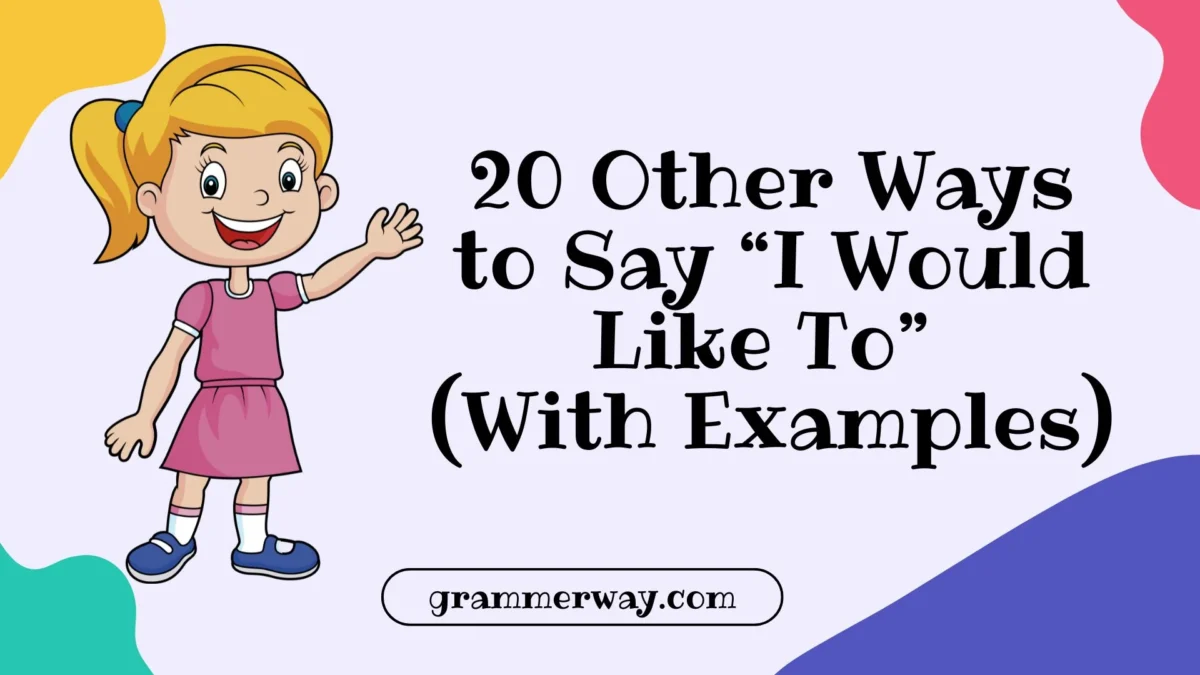
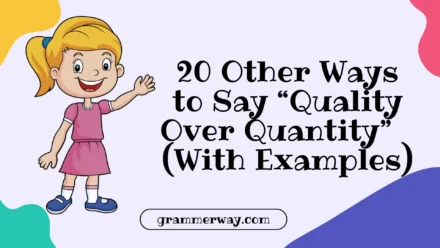
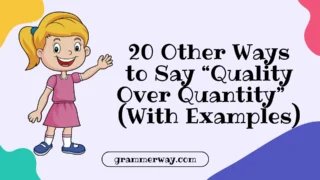
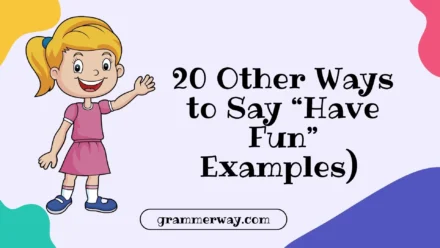
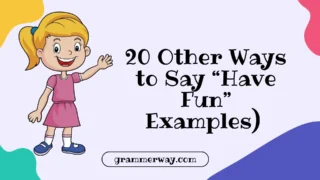
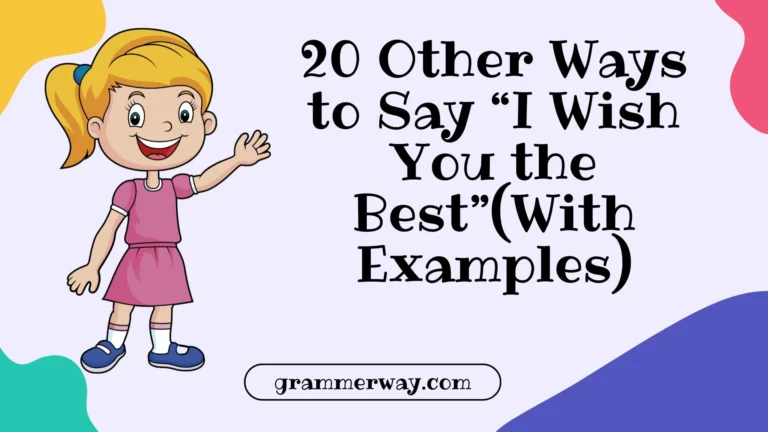
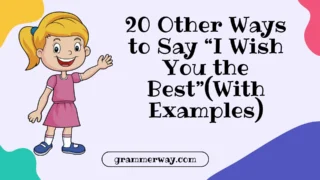
Leave a Comment